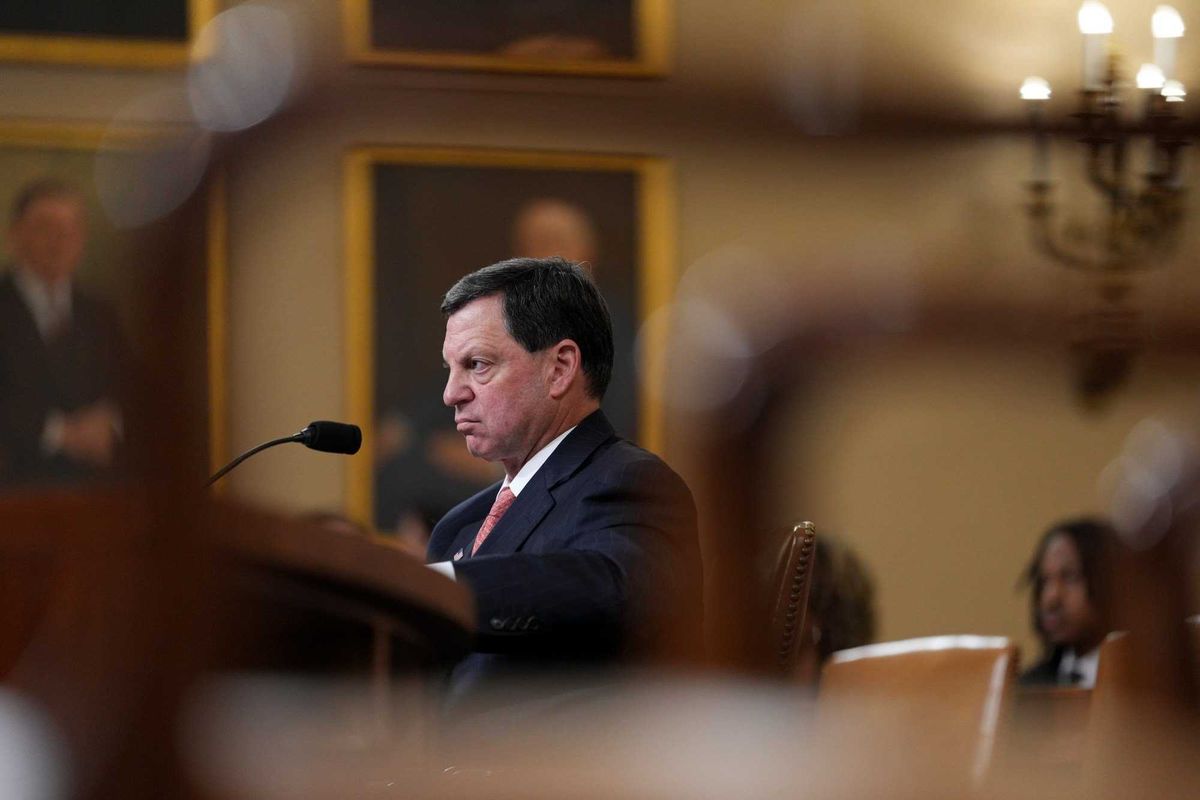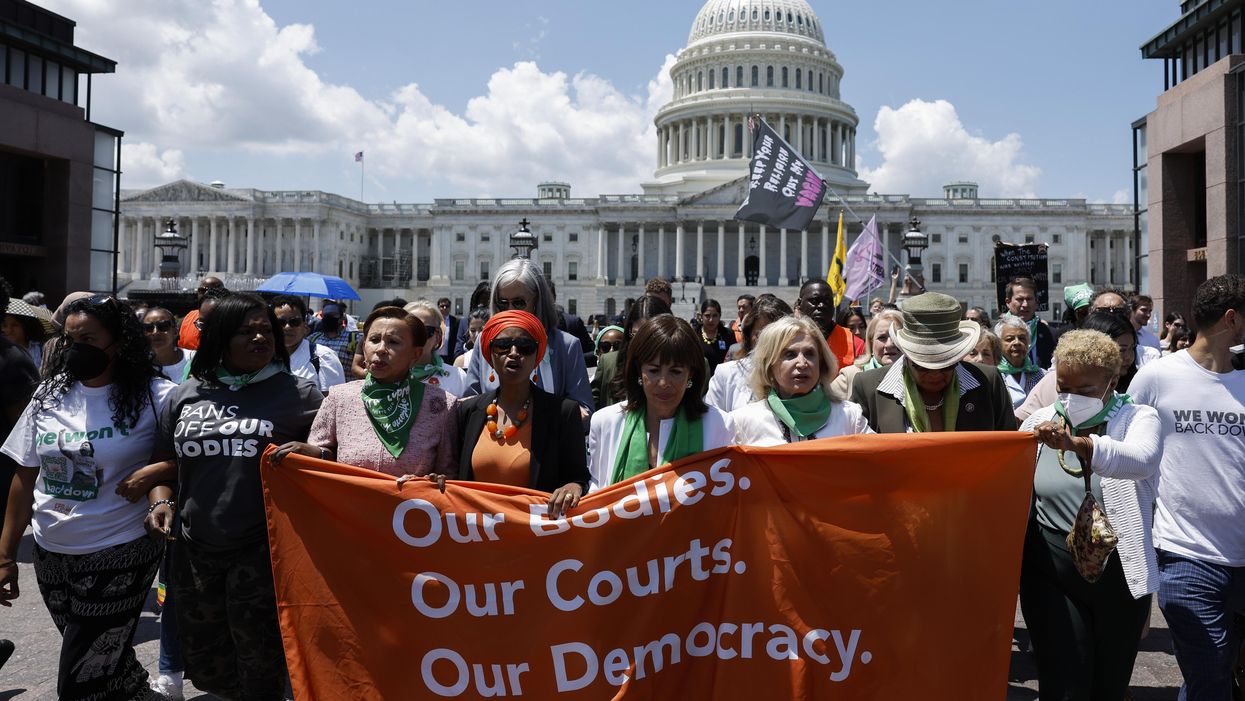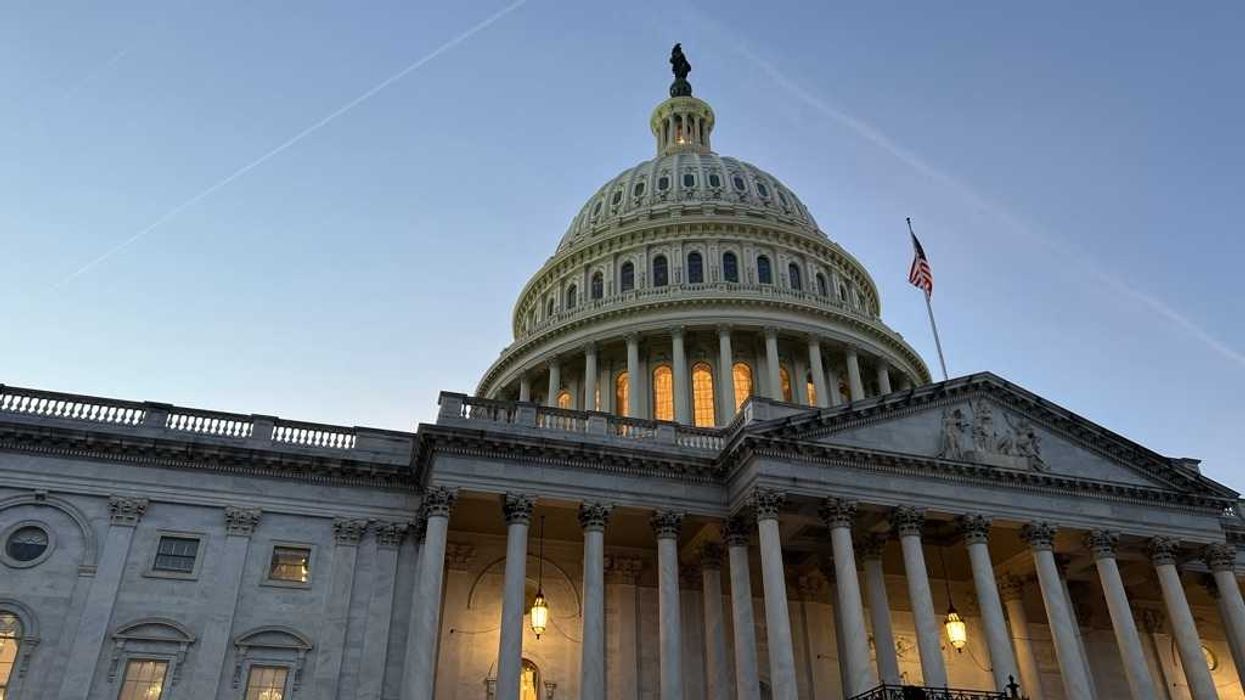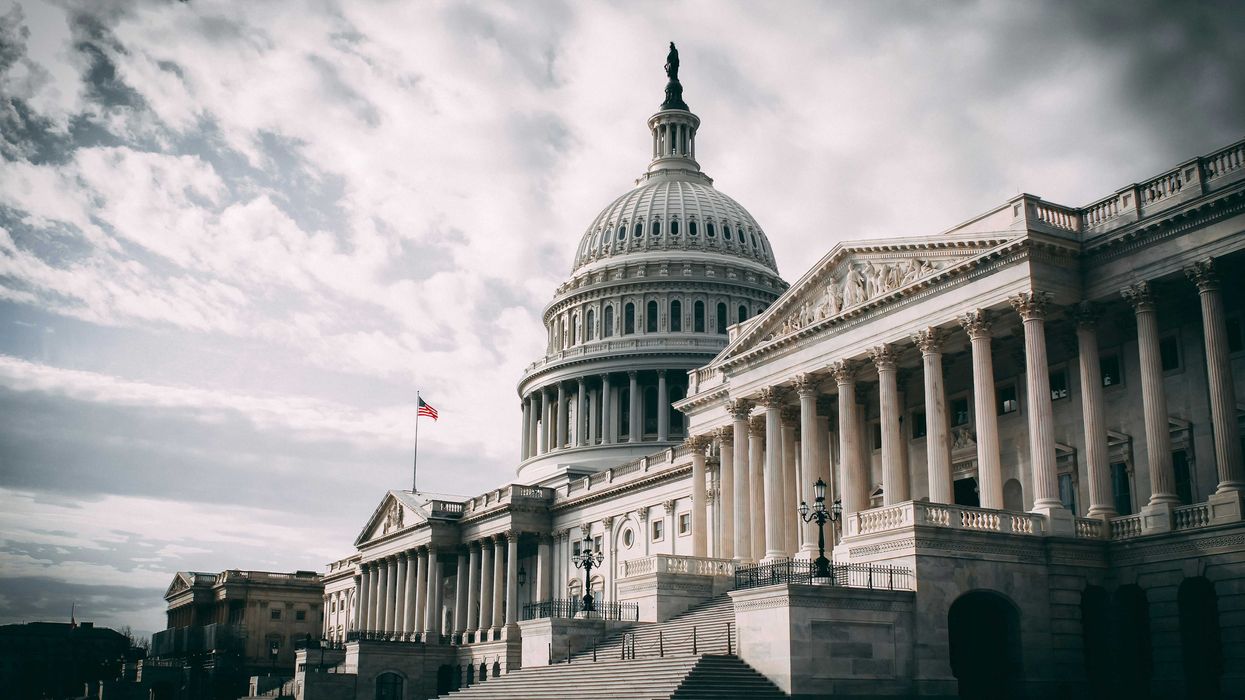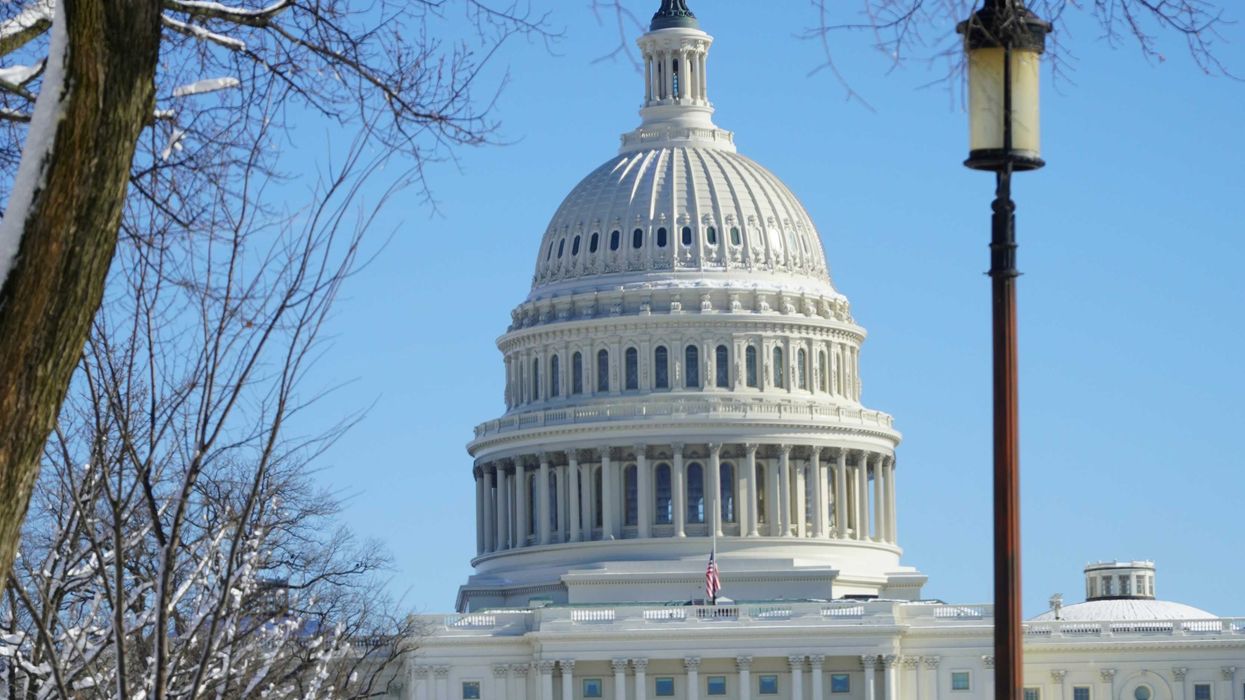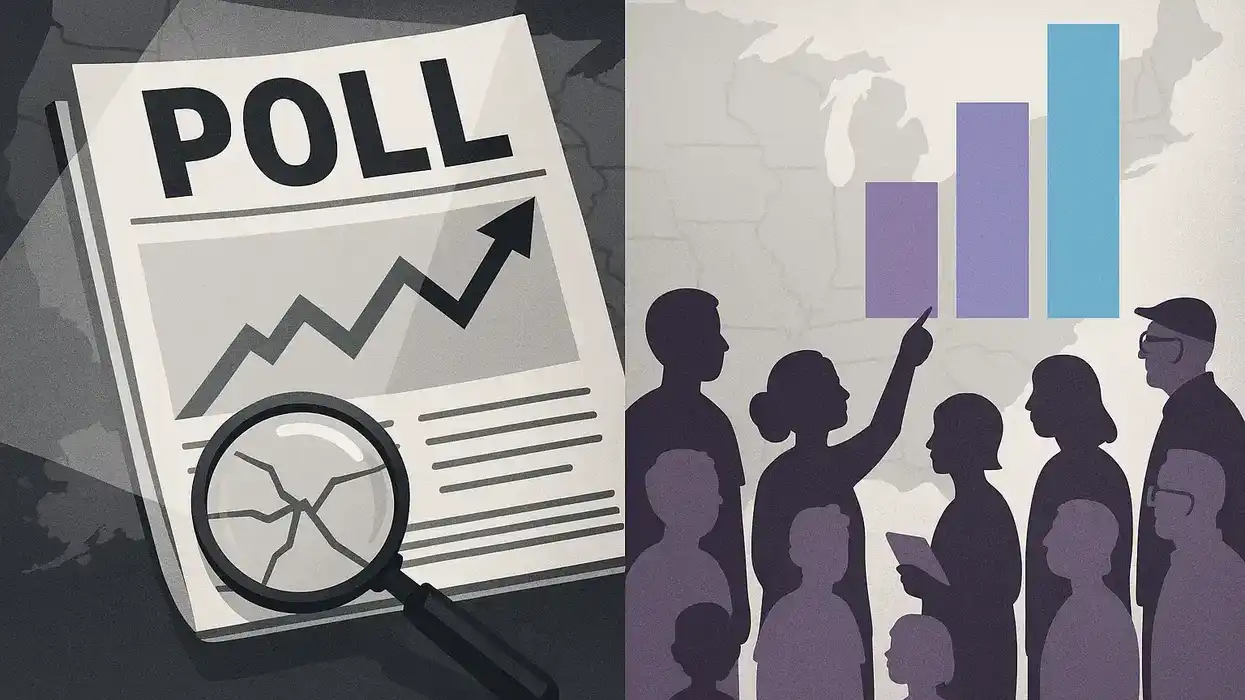Why does The Fulcrum feature regular columns on health care in America?
U.S. health care spending grew 9.7 percent in 2020, reaching $4.1 trillion — 19.7 percent of the gross domestic product. Over the long term this is clearly unsustainable. If The Fulcrum is going to fulfill our mission as a place for informed discussions on repairing our democracy, we need to foster conversations on this vital segment of the economy. Maximizing the quality and reducing the cost of American medicine not only will make people's lives better, but will also generate dollars needed to invest in education, eliminating poverty or other critical areas. This series on breaking the rules aims to achieve that goal and spotlights the essential role the government will need to play.
Pearl is a clinical professor of plastic surgery at the Stanford University School of Medicine and is on the faculty of the Stanford Graduate School of Business. He is a former CEO of The Permanente Medical Group.
A pair of Supreme Court rulings in June — one on gun rights, the other on abortion — have elicited strong, partisan reactions.
In recent weeks, critics have called out inconsistencies in the court’s decisions: One ruling restricts the ability of states to regulate guns while the other expands the right of states to regulate abortions. The result, opponents say, is that Americans are free to carry guns but forced to carry babies.
Legal scholars observed yet another contradiction. During confirmation hearings and in past decisions, conservative justices extolled the virtues of stare decisis — the legal principle of keeping prior rulings in place. But in last month’s monumental 5-4 decision to overturn Roe v. Wade, the majority reversed that decision, which had stood for nearly 50 years.
In the wake of those decisions, the court’s conservative majority has been called radical, hypocritical, even draconian. All that may be true, but what worries me most as a physician is how quickly the highest court in the land has become unscientific and medically negligent.
SCOTUS v. science
A popular defense of the court’s decision to overturn Roe goes something like this: “Some court rulings are wrong, egregiously so, and don’t deserve deference, even if they have stood for decades.”
Those words come courtesy of Ryan Rusak, a political columnist with the Fort-Worth Star-Telegram, who was explaining a controversial subtweet from Republican Sen. John Cornyn.
Cornyn’s idea was that long-standing precedent was also discarded in Brown v. Board of Education, a landmark decision that desegregated schools in 1954. That ruling overturned Plessy v. Ferguson, the infamous “separate but equal” decision from 1896, made nearly 60 years prior.
Although the court indeed discarded the legal principle of stare decisis in both reversals (from Plessy to Brown and Roe to Dobbs), there is a critical difference between the two opinions.
The decision in Brown was based, in part, on decades of scientific progress whereas the reversal of Roe swept decades of science under the rug.
The false equivalence of Plessy and Roe
Back in 1896, some of the world’s leading academics believed that Black people were biologically inferior to whites. This misbelief, now labeled scientific racism, seemed reasonable to the court in 19th century America and played a major part in the Plessy ruling.
Some 60 years later, by the 1950s, the application of scientific scrutiny had helped our nation (and the Supreme Court) realize that racialized pseudoscience was harmful to both child education and American society.
When Chief Justice Earl Warren delivered the opinion of a unanimous court in Brown, scholars noted that he “based much of his opinion on information from social science studies rather than court precedent.”
In other words, the ruling was rooted in science, putting facts ahead of dogmatic belief and personal biases.
In the recent Dobbs ruling on abortion, five of nine justices did the opposite. They were aware of the scientific rationale used — in Roe (1973) and Casey (1992) — to constitutionally protect the health and well-being of the mother, but they nevertheless chose to ignore the data. And that is, by definition, unscientific.
Dogma and originalism rule the Court
Today’s court is led by justices who interpret the Constitution through the words of its authors “at the time it was written.” This judicial philosophy of originalism has allowed members of the court to bend or ignore 235 years of facts to fit a desired, often preconceived, set of conclusions.
In doing so, they fail to acknowledge that the Constitution was written when a) the average American’s life expectancy was 38 years, b) married women were considered property of their husbands with no legal identity, and c) the most popular gun on the market had a magazine capacity of one and took approximately three minutes to load.
Nearly two and a half centuries of progress have afforded us greater scientific understanding than our forefathers had.
Modern research now allows us to better assess threats to human life and implement measures to avoid them. As a result, life expectancy is 79 years, doubling our distant ancestors. Moreover, women are no longer deemed property or second-class citizens. Those leaps forward in law and logic afford women more rights today than they had 235 years ago (at least on paper), including the rights to privacy, self-determination and equality. And whereas yesterday’s guns took minutes to load, today’s high-powered weapons can end multiple lives in seconds, a reality demonstrated time and again, with more than 160 people gunned down since this months’s deadly Fourth of July shooting in Highland Park, Ill.
A society in reverse
The world is different now — better, in many ways, thanks to science. We can cure disease, access limitless medical information with a tap of the finger and proactively sidestep serious medical risks.
But instead of celebrating and building upon scientific progress, our nation’s highest court is casting it aside, pushing American society backward.
Centuries ago, the Inquisition cast Western Europe into an age of ignorance and regression. Science, medicine and other academic pursuits were censored or rejected by tribunal courts and replaced with the “rule of faith,” resulting in the deaths of tens of thousands of people over a span of 200 years.
Throughout history, unnecessary deaths happen whenever people in power deny and ignore science. This moment in history won’t be an exception.
Unscientific decisions have consequences
Research consistently shows that greater access to firearms results in more shooting deaths while restricted access to reproductive health care results in more maternal deaths.
Indeed, guns killed over 45,000 Americans last year — 14 percent higher than the year before and 43 percent higher than a decade ago. Since 2014, the United States has experienced more than 3,600 mass shootings. The United States is home to 10 times more gun-related deaths than the next four richest countries combined. Shootings have become the leading cause of death among children, killing more kids than cancer.
Taking all these facts into account, Justice Stephen Breyer concluded that “when courts interpret the Second Amendment, it is constitutionally proper, indeed often necessary, for them to consider the serious dangers and consequences of gun violence.”
The same notion is true of reproductive rights. When the United States legalized abortion for all women in 1973, the justices did so knowing that restrictive state laws didn’t eliminate abortions. They just made abortions medically unsafe, exacting a massive toll on women’s health that disproportionately affected lower-income women. Health care professionals know that nearly every death and injury resulting from an unsafe abortion is avoidable when the procedure performed by a doctor.
In both recent decisions, the conservative court majority either ignored these facts or questioned their relevance. It doesn’t matter whether you’re a nurse, doctor or Supreme Court justice — overlooking scientific facts is medically negligent and is destined to cause death.
Of course, Supreme Court Justices aren’t trained as scientists or physicians, but they certainly must recognize that overturning Roe and making it easier for people to carry concealed weapons in public will end lives. Knowing that, the only logical conclusion we can draw is that the majority of Justices don’t care about the consequences.
As a physician, I find that lack of compassion unacceptable and the Court’s lack of concern terrifying.

